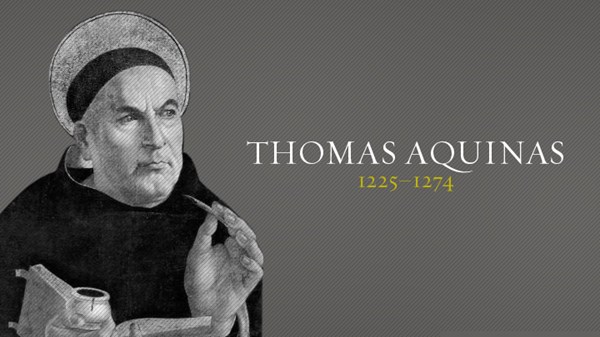Who is Thomas Aquinas?

Facts about Saint Thomas Aquinas
- St. Thomas Aquinas was born around January 28, 1225, died on March 7, 1274, and was canonized on July 18, 1323 by Pope John XXII.
- Thomas was born in Naples, Italy, studied and traveled in Paris, France and Cologne, Germany. He went back and forth from Naples and Paris multiple times throughout his life.
- A funny nickname that Thomas Aquinas came to be known by was "The Dumb Ox" because he had a slow, deliberate style of speaking and a large waistline.
Aquinas the philosopher and his works
- Aquinas was also a great philosopher, using reason and logic to prove the existence of God. His goal was to study the composition of religion, particularly Christianity, and to disect its beliefs and sort out the truth from the falsehoods.
- Thomas is widely regarded as having made significant efforts at continuing Scholasticism, which Pope Leo XIII proclaimed to be the official Roman Catholic philosophy in 1879.
- One of Aquinas's most famous works, the Summa Theologica, connects the relationship between the minds of God and man with the union of religious doctrine and intelligence. This work basically outlines Thomas's most central beliefs about God and the Church and how he seeks to prove them through Scripture and reason.
Aquinas's Five Proofs (Also known as the Five Ways)
- The Unmoved Mover: A Supreme Mover is necessary if something is moved because eternal lapse is impossible.
- The First Cause: There must be a First Cause to the universe since every result is linked with a cause and since eternal lapse is impossible.
- The Ultimate Necessity: All consequences must be able to be traced back to source.
- The Perfect Source: An Ultimate Perfection is necessary in the world as a source of all other worldly perfections.
- The Purpose: Even though living creatures have a purpose which is internal, lifeless objects may also have a purpose defined by an external source.
Additional Philisophical Teachings
In addition to the Five Proofs, Aquinas highlights several other important truths in the Summa Theologica, including:
- Christian morality and how we should live
- Ethics, laws, and how we should apply them to our lives
- The life of Christ and the lessons we can draw from it
Religious Order
- Thomas Aquinas decided to join the Dominicans, also known as the Friars Preachers, a religious order that was founded about 30 years prior to Aquinas joining it.
- The primary charism of this order is a heavy emphasis on the importance of education and a constant, righteous pursuit of truth. One of its man goals is to educate its members to better understand and argue for the truth in a world of lies.
Quote and Reflection
"To one who has faith, no explanation is necessary. To one without faith, no explanation is possible." - Saint Thomas Aquinas
This quote means that without faith, one cannot begin to understand Christ, the Church, or anything about the Christian faith. It highlights how Aquinas stressed the importance of faith to the believer and how faith is the key to understanding the truth. If one doesn't have faith, they cannot comprehend the miracles that Christ performed, for example, because they have already chosen not to believe them. However, if one truly believes that Christ is who He says He is, then he or she doesn't need an explanation because they have already understood what Christ did because they believed in Him.

